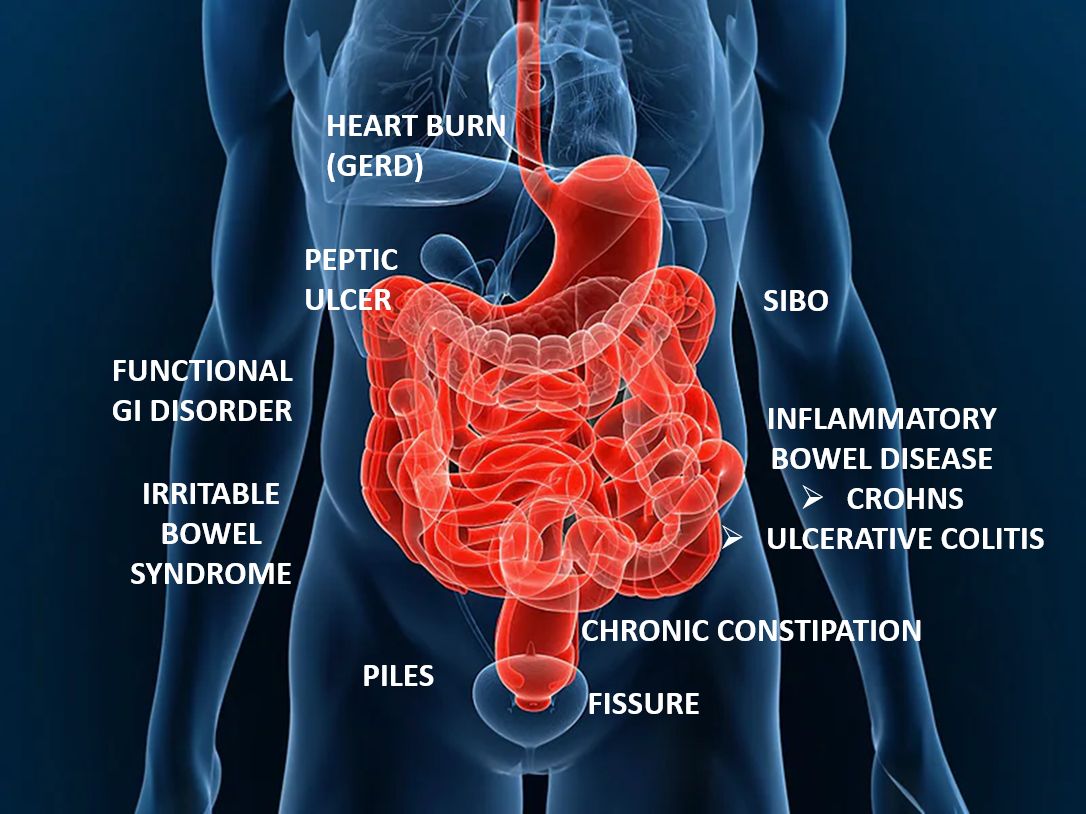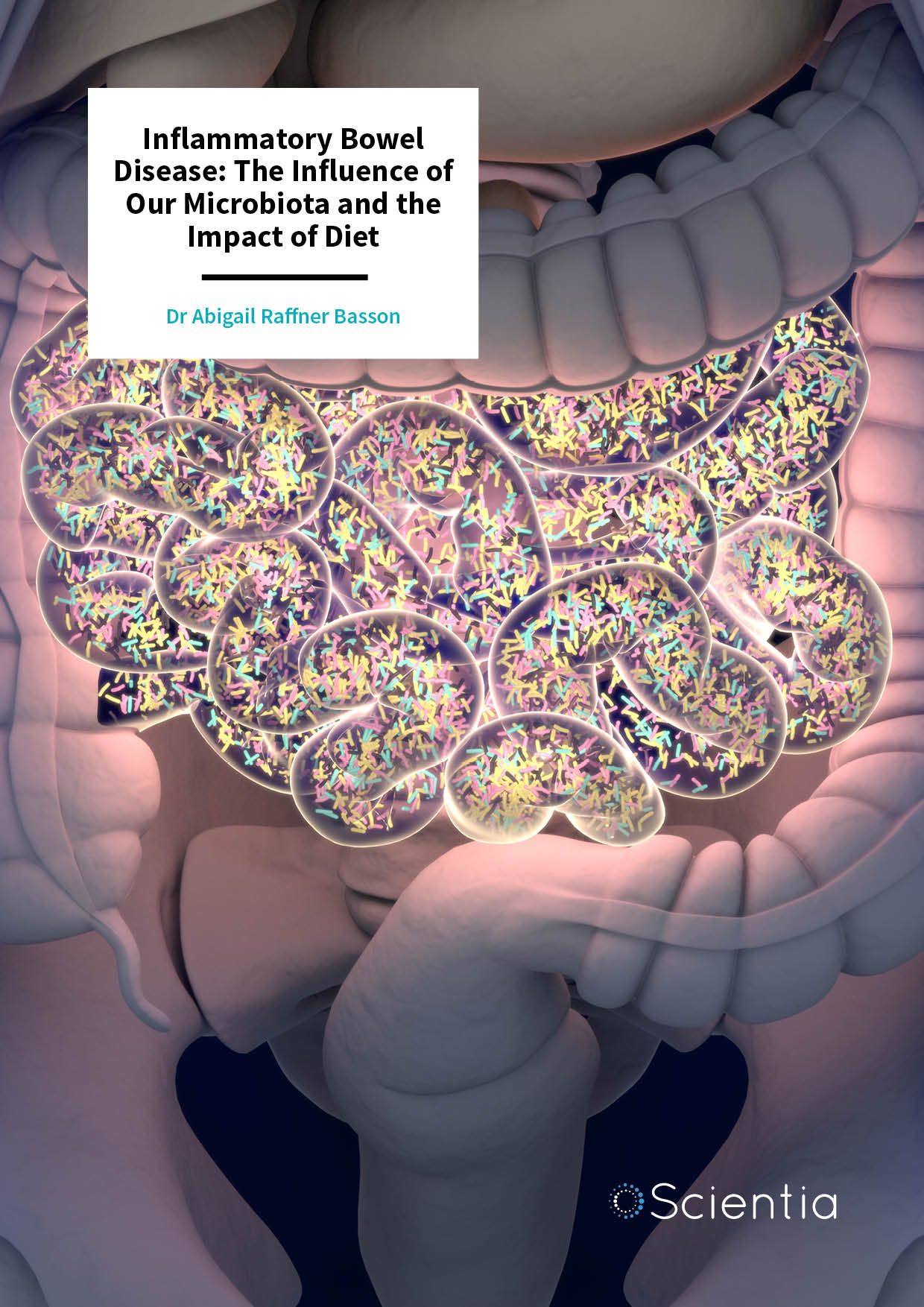
The daily ritual of brewing and sipping coffee is a beloved part of life for millions across the globe. Whether it’s the comforting aroma, the energizing jolt, or simply the warmth in your hands, coffee holds a special place in our routines. However, amidst the widespread adoration, a crucial question often emerges: what exactly is this popular beverage doing to our gut health? Many have pondered if their morning cup is a secret weapon for well-being or, perhaps, an unexpected saboteur, especially for those concerned about issues like “leaky gut.
It’s easy to get lost in a sea of speculative claims and anecdotal evidence when it comes to diet and digestion. But when we talk about coffee and your gut, the narrative is far from simple. While some theories you might encounter are indeed unfounded, a growing body of scientific literature suggests that this complex brew offers genuine benefits, though its full impact is still being thoroughly investigated. The interplay of its many compounds creates a fascinating dynamic within your digestive system.
This in-depth exploration aims to provide clarity on the actual scientific findings, moving beyond hearsay to present an evidence-based perspective. We’ll delve into the multifaceted ways coffee interacts with your gastrointestinal tract, from its surprising role in promoting regularity to its intricate dance with the trillions of microorganisms that call your gut home. Get ready to uncover the definitive truth about what your daily coffee really does for your digestive health.

1. **Beyond the Morning Buzz – The Surprising Broader Health Benefits of Coffee**
Coffee stands as a truly global phenomenon, cherished by individuals worldwide not just for its distinct flavor but also for the invigorating lift its caffeine provides, often acting as a vital kickstart for the day. While caffeine frequently receives criticism and a “bad rep” in health discussions, a substantial body of research increasingly demonstrates that coffee extends far beyond a simple energy booster, offering a range of interesting and sometimes surprising health benefits that are worth noting.
These broader health advantages are quite remarkable in their scope. For instance, studies have indicated a significant potential for coffee consumption in reducing the risk of heart disease, contributing to cardiovascular well-being. Furthermore, it has been shown to offer a protective shield against the development of diabetes, a widespread metabolic condition. Intriguingly, coffee has also been linked to a reduced risk of Parkinson’s disease, highlighting its neuroprotective capabilities.
Adding to its impressive resume, some research also suggests that regular coffee intake may hold the potential to offer protection from certain types of cancer, underscoring its anti-cancer properties. While these extensive capabilities of coffee are certainly compelling and contribute to its overall health profile, our primary focus in this discussion will pivot specifically to the intricate and direct relationship between this dark, beloved beverage and the health of your gut microbiome, a connection that is proving to be just as profound.

2. **Decoding Your Inner Ecosystem – A Crucial Introduction to the Gut Microbiota**
It often comes as a surprise to many to discover the sheer scale of life residing within the human body. We are, in fact, hosts to an astonishing estimated 10 trillion microorganisms. This vast and diverse community includes a fascinating array of viruses, bacteria, fungi, and protozoa, with a significant majority of these microscopic inhabitants choosing the gastrointestinal tract as their primary residence. This collective of organisms living harmoniously within your gut is precisely what scientists refer to as the gut microbiota.
This incredibly complex and dynamic collection of microorganisms is far more than just a collection of microscopic tenants; it actively helps regulate a multitude of critical cellular functions throughout the entire body. Among its most paramount responsibilities are the crucial processes of energy metabolism, ensuring your body efficiently converts food into usable energy. It also plays a key role in neuroendocrine response, influencing the intricate communication pathways between your brain and various bodily systems. Moreover, its involvement in immune response is fundamental, acting as a frontline defender for your body’s protection.
Maintaining a healthy and balanced gut microbiota, a state often associated with promoting and boosting beneficial probiotic bacteria levels, is absolutely foundational for overall good health, impacting well-being in countless ways. Conversely, when an imbalance occurs, a condition known as dysbiosis, the consequences can shift things dramatically for the worse. This imbalance has been linked to a spectrum of undesirable health outcomes, including obesity, diabetes, and inflammatory bowel disease (IBD). Dysbiosis can also contribute to non-alcoholic fatty liver disease, non-alcoholic steatohepatitis, and cardiovascular disease, illustrating its far-reaching systemic effects. Crucially, the gut microbiota is also instrumental in facilitating the absorption of vital nutrients from the food you consume, and it produces important enzymes and short-chain fatty acids, underscoring its indispensable role in digestion and nutrient assimilation.

3. **The Hidden Compounds – How Coffee’s Rich Composition Influences Gut Health**
Beyond its well-known caffeine content, coffee is, in fact, a remarkably complex beverage, teeming with a surprising diversity of bioactive compounds. Far from being a simple stimulant, a single cup can contain more than 1,500 additional active compounds, each potentially contributing to its multifaceted interactions within the human body, particularly with the gut. This intricate chemical profile is what truly sets coffee apart and explains its wide-ranging physiological effects.
Among this rich array of components, you’ll find a variety of essential minerals, complex polysaccharides, intricate phenolic polymers, and notable organic acids. One particularly prominent compound is chlorogenic acid, which many might recognize due to its common use as a weight-loss aid in various supplements. The presence of such diverse elements means that when you enjoy your cup of coffee, there’s a profound biological process unfolding beneath the surface, far more intricate than most realize.
This sophisticated composition is precisely what enables coffee to exert its varied influences on gut health. These compounds don’t just pass through; they actively interact with the digestive system, affecting everything from the muscular contractions that move food along the gastrointestinal tract to the delicate and dynamic balance of the gut microbiome itself. Understanding this hidden world of coffee’s constituents is paramount to appreciating the full spectrum of its impact on your digestive well-being.

4. **The Daily Urge – Coffee’s Powerful Impact on Bowel Movement and Motility**
For a significant number of individuals, the morning cup of coffee serves a dual purpose: not only does it provide that much-needed jolt of energy and mental alertness, but it also acts as a remarkably reliable catalyst for a healthy bowel movement. This widely experienced effect is, in fact, well-supported by scientific inquiry, with data from numerous clinical trials consistently demonstrating that drinking coffee can significantly enhance bowel motility, thus aiding in digestive regularity and alleviating common issues like constipation.
A particularly insightful study conducted at the Royal Hallamshire Hospital in Sheffield, England, provides strong empirical evidence of coffee’s efficacy in this regard. The research involved ninety-nine healthy volunteers who participated in a controlled experiment, completing detailed questionnaires about their bowel responses after consuming either black, unsweetened coffee or plain hot water. The results were striking: a substantial majority of the participants unequivocally reported an increased desire to defecate after drinking the coffee, a response that was entirely absent when they consumed only hot water. This clear differentiation underscored coffee’s specific physiological impact.
Based on these compelling observations, the researchers concluded that “Drinking coffee can stimulate a motor response of the distal colon in some normal people,” providing a direct link between coffee intake and bowel activity. Further illuminating the internal mechanisms at play, another study involving rats offered deeper insights into the cellular events occurring within the gut. In this animal model, rats given coffee for three days exhibited increased smooth muscle contraction in both their small intestine and colon. This finding explains how coffee physically aids in propelling waste through the digestive tract, contributing to its laxative-like effect. This ability to encourage healthy bowel movement is undeniably favorable, especially considering that persistent constipation can lead to a host of health issues, including the buildup of toxins, which can encourage disease and ill health, and even interfere with energy metabolism, potentially contributing to weight gain and fatigue.

5. **Brewing Bacteria – Coffee’s Intricate Influence on Gut Microbiota Composition**
Beyond its direct effects on bowel motility, coffee also engages in a fascinating and somewhat complex relationship with the trillions of microorganisms that constitute your gut microbiota. Emerging scientific research indicates that specific compounds inherent in coffee possess the capacity to influence both the types and relative abundance of bacteria residing within your gastrointestinal tract, leading to significant shifts in the microbial landscape. This interaction is a key area of study in understanding coffee’s holistic impact on digestive health.
One compelling line of inquiry highlights the role of mannooligosaccharides, compounds that can be extracted from spent coffee grounds. Studies have specifically demonstrated that these mannooligosaccharides are highly capable of stimulating the growth of beneficial probiotic bacteria. This is a positive finding, suggesting coffee could act as a prebiotic, nourishing the good bacteria in your gut. Furthermore, data from the same research revealed that these mannooligosaccharides also supported notable increases in the production of short-chain fatty acids (SCFAs), which are vital byproducts of bacterial fermentation known for their crucial roles in gut health, immune function, and overall metabolic well-being.
However, the complete picture of coffee’s impact on microbiota composition is not entirely straightforward and remains an active area of investigation. It has been observed that while mannooligosaccharides offer these favorable effects, spent coffee grounds also contain other compounds, such as 5-hydroxymethyl furfural and various polyphenols. Intriguingly, these particular compounds may, to some extent, inhibit probiotic growth, presenting a somewhat paradoxical or “anti-climax” scenario. This apparent duality, where coffee grounds provide both beneficial and potentially inhibitory compounds, inherently “muddies the water” and strongly suggests a continued need for further, more nuanced study to fully elucidate coffee’s comprehensive impact on the gut microbiome. Additional research has also shown that coffee can suppress bacterial growth in fecal matter in a dose-dependent manner, further underscoring the complexity and the ongoing necessity for thorough evaluation.

6. **Diverse Digestion – How Coffee Consumption Positively Impacts Microbiota Diversity**
The positive influence of coffee on gut health extends beyond merely altering the specific types and relative abundance of bacteria; it also appears to significantly contribute to enhancing the overall diversity of the gut microbiota. Microbiota diversity is a profoundly important indicator of a healthy and resilient gut ecosystem. Generally, a higher level of microbial diversity is strongly associated with favorable health outcomes, signaling a robust and adaptable internal environment. Conversely, a lower diversity is often linked to adverse health conditions, including an increased risk of serious issues like colorectal cancer and inflammatory bowel disease (IBD).
Compelling evidence supporting this connection emerged from a large-scale, population-based metagenomics study. This extensive research found a notable association between the consumption of coffee, alongside other polyphenol-rich beverages like tea and red wine, and an increased “alpha diversity” within the gut microbiome, as assessed from stool samples. This suggests that the rich and complex array of bioactive compounds present in coffee might play a crucial role in fostering a more varied, stable, and functionally robust microbial community within the digestive tract, which is highly beneficial for long-term health.
Further reinforcing these findings, a recent cross-sectional study delved deeper into this intricate relationship by examining colonic mucosa-associated bacteria obtained from human biopsies in adults. This study revealed significant differences in the community composition and structural organization of these bacteria, directly correlated with daily caffeine and coffee intake. Specifically, individuals with higher coffee consumption exhibited not only greater alpha diversity but also a higher relative abundance of highly beneficial bacterial genera such as Faecalibacterium and Alistipes. Concurrently, a lower relative abundance of the potentially problematic Erysipelatoclostridium was observed. While these findings are remarkably promising and strongly suggest a positive role for coffee in shaping a healthier, more diverse gut environment, ongoing research is still vital to definitively determine the precise mechanisms through which caffeine and coffee consumption ultimately affect overall health outcomes by modulating gut microbiota diversity.

7. **Fueling Growth – Coffee’s Potential to Promote Beneficial Bacterial Proliferation**
The intricate relationship between coffee and the gut microbiota extends beyond simply influencing the existing composition and diversity of bacteria; it also encompasses the intriguing possibility of directly impacting the growth and proliferation of specific bacterial species. Scientific researchers have actively pursued investigations into how the myriad components within coffee might either encourage or, in some cases, inhibit the multiplication of these microscopic inhabitants crucial to our digestive system. This area of study is vital for understanding the dynamic interaction between what we consume and our internal microbial partners.
One notable finding, as reported by Jaquet et al., indicated that coffee indeed possessed the capacity to promote the growth of certain select bacterial species. This particular observation is highly significant, as it aligns with the broader hypothesis that coffee, through its diverse array of bioactive compounds—including but not limited to caffeine—acts as a modulator within the gut environment. Such a modulatory effect could potentially cultivate a more favorable internal landscape, thereby providing an ideal breeding ground for beneficial microorganisms to thrive and contribute positively to gut function and overall health.
However, it is important to acknowledge that the full nuances of these growth-promoting or inhibitory interactions are still actively being uncovered by the scientific community. While some studies suggest a clear growth-promoting effect on certain beneficial bacterial strains, the existing context also subtly alludes to conflicting results concerning other compounds present in coffee that might, conversely, have an inhibitory effect on probiotic growth. This complex and occasionally contradictory interplay signifies that coffee’s effect on bacterial proliferation is far from a simple, monolithic process. Instead, it represents a sophisticated biochemical dance within the gut, necessitating continued and comprehensive scientific exploration to fully map out these intricate microbial dynamics and their ultimate implications for human health.
The journey through coffee’s fascinating interplay with our gut health continues, now venturing into areas where its effects can become more nuanced, and for some, even problematic. While the initial sections illuminated coffee’s positive contributions to bowel motility and the gut microbiome, it’s equally crucial to address the concerns that arise for individuals with pre-existing digestive sensitivities or conditions. Understanding these interactions is paramount for making informed choices about your daily brew, ensuring it aligns with your overall health goals. For a comprehensive view of how your morning cup truly affects your well-being, let’s explore these important considerations.

8. **Coffee’s Complex Relationship with Irritable Bowel Syndrome (IBS)**
For many individuals living with Irritable Bowel Syndrome, or IBS, identifying dietary triggers is a continuous and often challenging endeavor. Coffee, with its potent blend of compounds, frequently emerges as a suspected culprit. An observational study provided insights into this connection, revealing that the likelihood of coffee drinkers developing IBS was 44% higher compared to those who never consumed coffee. This risk appeared to be most pronounced in individuals who consumed at least 106.5 mg of caffeine per day, which is roughly equivalent to a standard cup of brewed coffee containing 95 mg of caffeine.
It is particularly important to recognize that this observed correlation often pertains more to caffeine intake from various sources—including tea, soda, chocolate, and even certain headache medications—rather than solely coffee itself. Indeed, an informational article from Johns Hopkins explicitly lists caffeine as one of the top five food components to consider removing for IBS management, primarily because caffeine can stimulate diarrhea, a common symptom for many IBS sufferers. While these are valuable observations, it’s crucial to understand that direct randomized clinical trials specifically assessing coffee’s isolated role in causing or worsening IBS symptoms have not yet been conducted.
Nevertheless, the anecdotal experiences of many individuals with IBS suggest that reducing caffeine consumption often leads to a noticeable improvement in symptoms. If you are experiencing IBS, it might be beneficial to temporarily eliminate coffee from your diet as you focus on healing your gut. This healing process often involves adhering to an anti-inflammatory diet, such as the low-FODMAP diet, which emphasizes whole and unprocessed foods to help restore gut balance and alleviate discomfort.

9. **Unpacking Coffee’s Link to Reflux and Heartburn**
Another common concern among coffee drinkers, particularly those with sensitive digestive systems, revolves around issues like reflux, heartburn, and gastroesophageal reflux disease (GERD). Coffee is indeed frequently cited as a potential contributor to these uncomfortable symptoms. While coffee alone hasn’t been the sole focus of studies in this area, it is consistently included within broader lists of foods and beverages, such as alcohol and certain vegetables, that appear to be associated with exacerbating reflux conditions.
A smaller randomized clinical trial, involving 30 participants who were known to be sensitive to coffee and also experienced symptoms of GERD (such as heartburn or acid reflux) or dyspepsia (upper abdominal burning), shed more direct light on this connection. The findings indicated that for these individuals, drinking coffee reliably triggered symptoms including heartburn, regurgitation, and dyspepsia. Interestingly, this study also investigated whether different coffee roasting processes played a role in symptom development, concluding that variations in roasting did not lead to differences in coffee-induced upper gastrointestinal symptoms.
This suggests that the inherent properties of coffee, rather than just how it’s prepared, are at play for sensitive individuals. For those who frequently experience heartburn or reflux after coffee consumption, this evidence supports the common practice of reducing or eliminating coffee to manage symptoms. Listening to your body’s unique responses is key in navigating whether coffee fits comfortably within your diet.

10. **Navigating Coffee Consumption with Leaky Gut Syndrome**
The concept of “leaky gut,” or intestinal permeability, refers to a condition where the lining of the gastrointestinal tract becomes compromised, allowing toxins and other undesirable substances to pass into the bloodstream. This can lead to widespread systemic inflammation and has been linked to various autoimmune conditions. For individuals grappling with leaky gut, or the associated autoimmune issues, coffee often becomes a point of contention, with many reporting that its consumption triggers symptoms like diarrhea or stomach pain. Consequently, a common strategy for those working to heal a leaky gut involves temporarily eliminating coffee.
Scientific literature also touches upon the relationship between coffee and intestinal permeability. A 2010 literature review, for instance, suggested that green coffee—which refers to coffee made from unroasted beans, unlike the roasted coffee most commonly consumed—might contribute more significantly to leaky gut symptoms than dark roasted coffee. This distinction is attributed to green coffee’s higher concentration of alpha-dicarbonyls, compounds that are highly prone to glycation, a process involving the binding of sugars to proteins or lipids.
Furthermore, it is noteworthy that both green and dark roasted coffee contain Advanced Glycation End Products (AGEs). These AGEs have the potential to induce inflammation, which could, in turn, exacerbate a leaky gut condition. For anyone seeking to address intestinal permeability, considering these factors and how coffee impacts their personal symptoms can be a valuable step in their healing journey. As with many dietary considerations, individual response can vary significantly, underscoring the importance of personalized observation and, if needed, professional guidance.

11. **Dispelling Myths – The Truth About Mold in Your Coffee**
Amidst the swirling discussions about coffee and health, a persistent claim often surfaces: that coffee is frequently contaminated with mycotoxins, fungi, or mold, and that these substances are responsible for a host of health problems ranging from leaky gut to cognitive issues like “brain fog.” It’s true that mycotoxins are toxic compounds produced by certain fungi (molds) and can indeed be found in many foods and drinks. However, the narrative surrounding coffee often exaggerates the actual risk.
While trace amounts of mycotoxins have been detected in some coffee samples, it is crucial to emphasize that current research does not support the assumption that these toxins are present at levels harmful to human health. In fact, one study specifically concluded that coffee drinking did not pose a risk of mycotoxin contamination. This scientific perspective helps to contextualize the concern and separate validated risks from speculative fears.
Nevertheless, it’s worth noting the anecdotal reports from some individuals who claim to be more sensitive to mold. These individuals sometimes report experiencing gastrointestinal symptoms when consuming regular coffee, but not when they drink coffee that has been specifically tested and marketed as low or absent in mold. However, reputable studies that definitively prove any coffee is entirely mycotoxin-free, or that “mold-free” coffee demonstrably causes less stomach distress, remain elusive. The key takeaway here remains consistent with a patient-focused approach: always listen attentively to your own gut and body. If coffee appears to consistently exacerbate any symptoms for you, it is a prudent step to temporarily remove it from your diet as you focus on broader gut healing strategies.
12. **General Recommendations for Coffee Consumption and Gut Health**
After navigating the intricate landscape of coffee’s effects on gut health, the overarching question remains: Is coffee good for you? Generally speaking, if your gut health is already robust and you do not experience adverse symptoms, coffee is likely perfectly fine for you to consume. In fact, its antioxidant and anti-inflammatory properties can be quite beneficial for digestive health, contributing positively to overall well-being.
Current research and broad meta-analyses suggest that a moderate intake of coffee can be associated with favorable health outcomes. For instance, about two cups of coffee per day are often cited as being beneficial for general health. A comprehensive 2019 meta-analysis, which consolidated findings from 40 observational studies involving nearly 4 million participants, indicated that consuming approximately 3.5 cups of coffee per day was associated with the lowest risk of death from any cause, showing a 15% reduction. Furthermore, 2.5 cups per day was linked to the lowest risk of death from heart disease, with a 17% reduction.
These figures underscore that for the general healthy population, coffee is not only acceptable but may indeed offer protective health benefits. However, it is essential to tailor these general guidelines to individual circumstances. Your personal response to coffee, especially concerning your digestive system, should always be the primary determinant of your consumption habits.
13. **Moderation is Key – Finding Your Coffee Balance**
The concept of moderation consistently emerges as a guiding principle in dietary recommendations, and coffee consumption is no exception. While many studies highlight the benefits of coffee, they also implicitly or explicitly point to the importance of not overdoing it. Excessive coffee intake, typically defined as more than 5 cups a day, has been implicated in adverse gastrointestinal effects, including reflux disorders and potentially even the progression of conditions like Crohn’s disease, as noted in some literature reviews.
To harness the health benefits of coffee while minimizing any potential adverse effects, it is generally suggested to maintain a moderate amount of consumption. This often translates to around 3–4 cups per day, coupled with a caffeine intake limit of equal to or less than 200 mg daily. This guideline allows individuals to enjoy coffee’s positive impacts, such as improved bowel motility and potential gut microbiome modulation, without pushing the body into a state of discomfort or imbalance.
Finding your optimal coffee balance is a highly personalized process. It involves careful self-observation and an understanding of your body’s unique sensitivities and responses. Paying attention to how you feel after your morning brew—whether it’s improved regularity, sustained energy, or the onset of digestive discomfort—is crucial in determining the right amount and frequency that supports your personal gut health journey.

14. **Prioritizing Gut Healing – When to Temporarily Halt Coffee**
While coffee offers numerous benefits for many, there are specific circumstances where temporarily stepping away from your daily cup can be a crucial step toward restoring gut health. If you find your digestive system is not functioning optimally—manifesting symptoms such as stomach pain, persistent diarrhea, bloating, or frequent reflux—it might be wise to consider cutting out coffee, at least for a period. For sensitive individuals, coffee can act as a direct trigger for these symptoms, and removing it can significantly aid in the healing process.
The primary focus during such times should be on creating a healthy and balanced gut environment. This typically involves adopting a low-inflammatory diet, rich in whole, unprocessed foods, and incorporating beneficial probiotics to help rebalance gut bacteria. This comprehensive approach addresses the root causes of digestive distress, rather than merely masking symptoms. When dealing with chronic digestive issues, identifying and removing triggers is a very helpful strategy.
The good news is that this temporary hiatus is often not a permanent farewell to coffee. Many individuals who successfully heal their gut are eventually able to reintroduce coffee back into their lives, often without experiencing the previous adverse symptoms. This process of reintroduction should be gradual and mindful, allowing your body to adapt and signaling whether your digestive system is ready to welcome back this beloved beverage. Remember, the ultimate goal is to empower your body to heal, and while it may seem overwhelming to cut out triggers in the short term, the long-term benefits of a healthy, resilient gut are immeasurable.
The world of coffee and gut health is undeniably complex, a tapestry woven with threads of ancient ritual, modern science, and individual biology. From its surprising role in stimulating bowel movements to its intricate dance with our trillions of internal microbial partners, coffee’s impact is far-reaching. While research continues to unravel the full spectrum of its effects, particularly on the delicate balance of our gut microbiome, the existing evidence provides a compelling picture. For many, a moderate daily intake offers a wealth of potential benefits, acting as a functional ally for digestive regularity and a diverse microbial ecosystem.
However, as with any potent compound, individual variations in response are paramount. For those with pre-existing sensitivities like IBS or leaky gut, or a propensity for reflux, coffee may, at times, exacerbate discomfort, necessitating a more cautious approach or even a temporary pause. The key takeaway is not a one-size-fits-all prescription, but rather an invitation to listen intently to your own body’s signals. Armed with this knowledge, you can savor your morning brew or opt for alternatives, making choices that truly nourish your unique digestive well-being. Here’s to a healthier gut, one thoughtful sip at a time!





